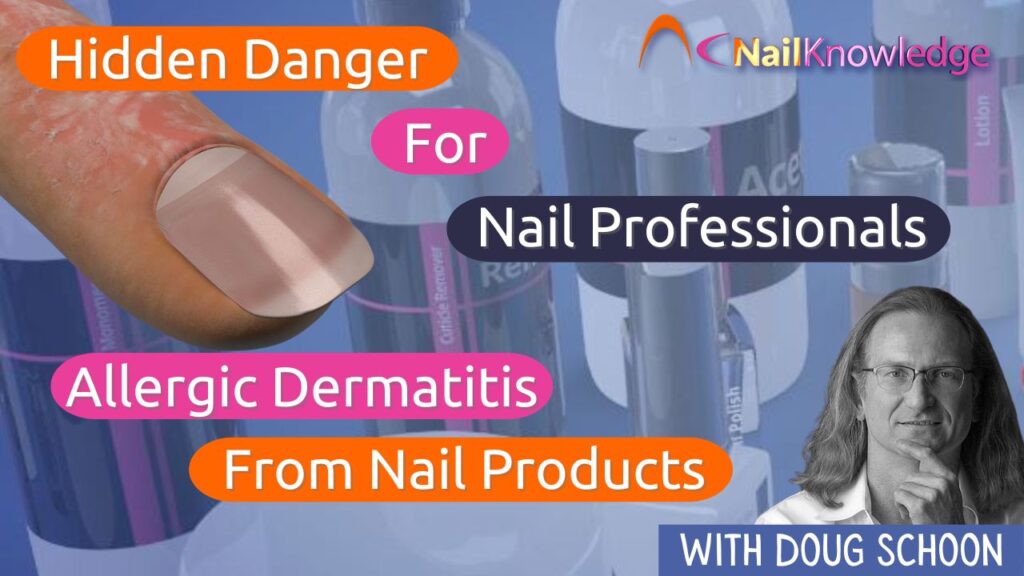Working as a nail technician can be a fulfilling career, offering the opportunity to create beautiful manicures and boost clients’ confidence. However, amidst the artistry and client satisfaction lies a hidden danger for some: allergic reactions to nail products, such as UV gels, which can result in allergic dermatitis. Despite the meticulous care taken by many technicians, exposure to these substances poses significant risks and challenges that need to be addressed effectively.
We address the experiences of one such nail technician who, despite taking precautions, found herself grappling with debilitating allergic reactions. Through her story and insights from industry experts, we uncover the importance of safety measures, product knowledge, and proactive strategies to prevent allergic dermatitis and preserve both health and career longevity.
The Dilemma of Allergic Dermatitis in Nail Technicians
This is a common query we receive from nail technicians who are grappling with the daunting challenge of allergic reactions to UV gels.
Unfortunately, my initial training using UV gels wasn’t great and I had overexposed myself before I knew it was a problem. Now, despite taking plenty of precautions I have severe reactions. I am very careful to use nitrile gloves and protect my hands, but sadly it’s not working. I have the most severe case of allergic dermatitis that is debilitating at times. I have had allergy patch testing and know I am allergic to my products. Is there any hope for me? Or do I have to start considering giving up my job?
Doug Schoon’s Insights: Preventing Allergic Reactions in Nail Technicians
Wow, what can I say? Other than “Don’t let this happen to you”. The same will happen to many others because they don’t take the necessary precautions to work safely.
The Role of Ingredients and Precautions
People don’t become allergic to products, they become allergic to ingredients, so switching products usually won’t help them. Often these problems are a result of mixing products not intended to be used together or using the wrong nail lamp OR using pigments, glitters or other colorants that are not safe for cosmetic use. Or just from constantly exposing the skin to under cured dust/filings.
Tough Decisions for Nail Technicians Facing Allergic Dermatitis

Sadly, the best answer when extreme conditions like this occur is, “find a new line of work and stop using or wearing nail coating products forever”. Once a serious allergy develops, it will most likely worsen with each additional exposure. It sounds like that’s what has happened to this soon to be “former” nail technician.
Preventing Skin Problems in Nail Technicians: Key Strategies for Early Intervention
At the first signs of skin problems, this nail technician could have prevented problems from worsening simply by ensuring proper cure and avoiding skin contact with dust, filings, sticky layers, UV gel, etc.
Keeping brush handles, containers and other objects free of sticky UV gel residues is also important.
Understanding the Role of Barrier Creams for Nail Technicians
To make gloves more effective, some will wear “barrier creams” underneath their gloves and on the wrist and forearms. Barrier creams are skin coating creams that can slow penetration of allergy causing substances into the skin where they activate allergic reactions.
However, barrier creams are NOT replacements for gloves and they must be used cautiously, since they usually contain ingredients from the silicone family.
Even small traces of silicones can block adhesion if they contaminate the nail plate, so be sure to carefully clean the client’s nail plates and avoid getting any silicone containing cream or lotion on tools or brushes.
Preserve Your Career: Prioritize Safety Measures
Finally, protect your career and the investment you’ve made to get where you are today. Please be serious about working safely.


